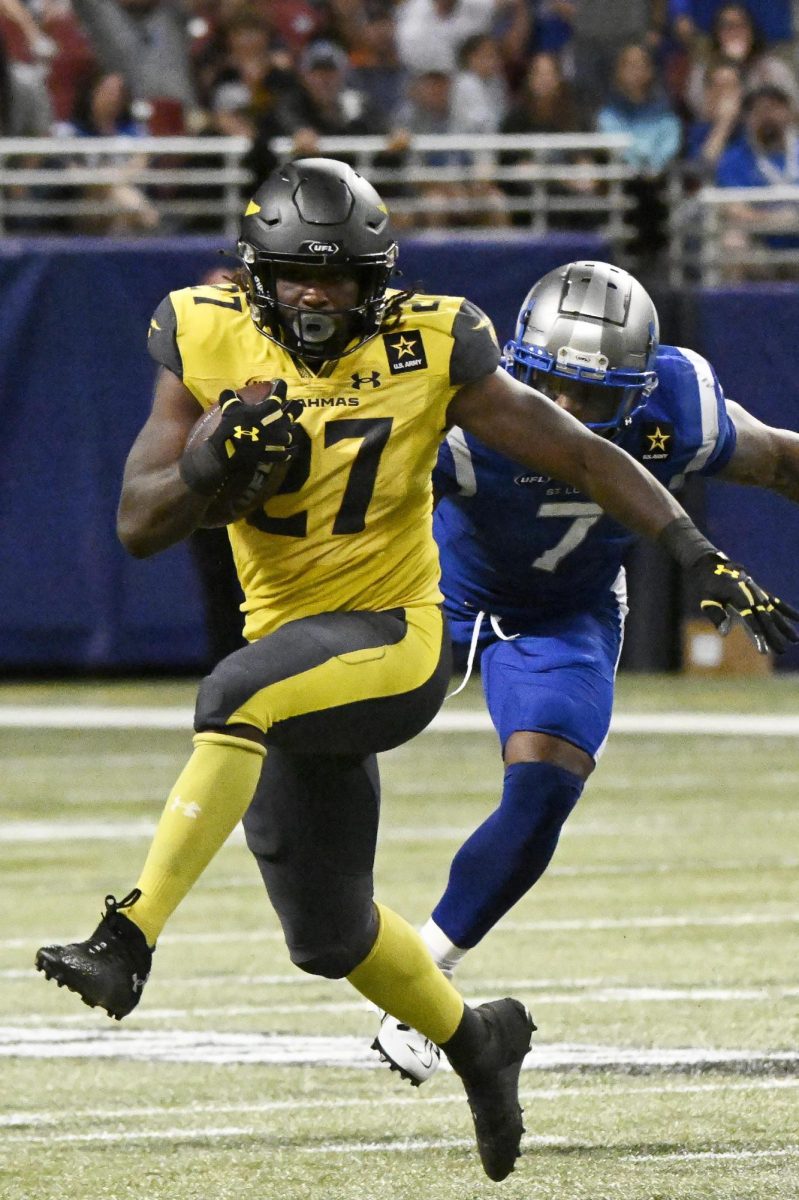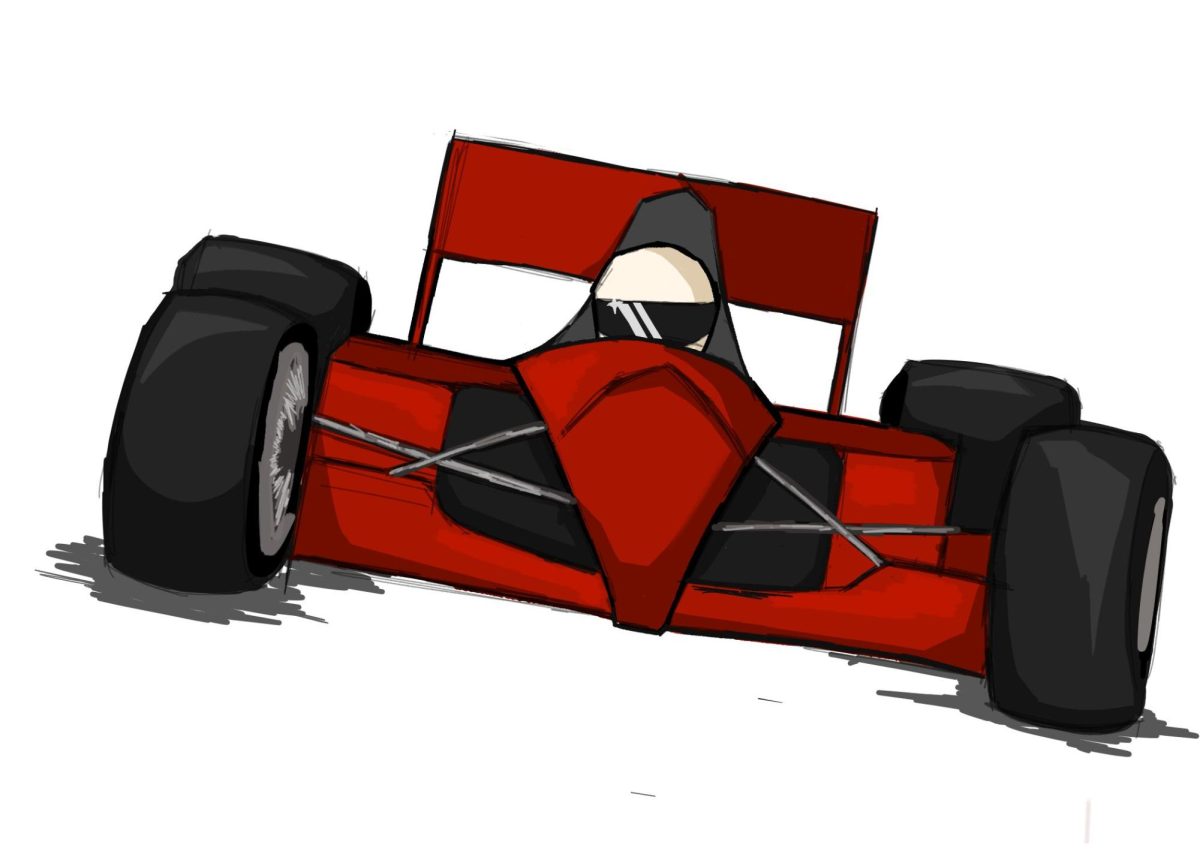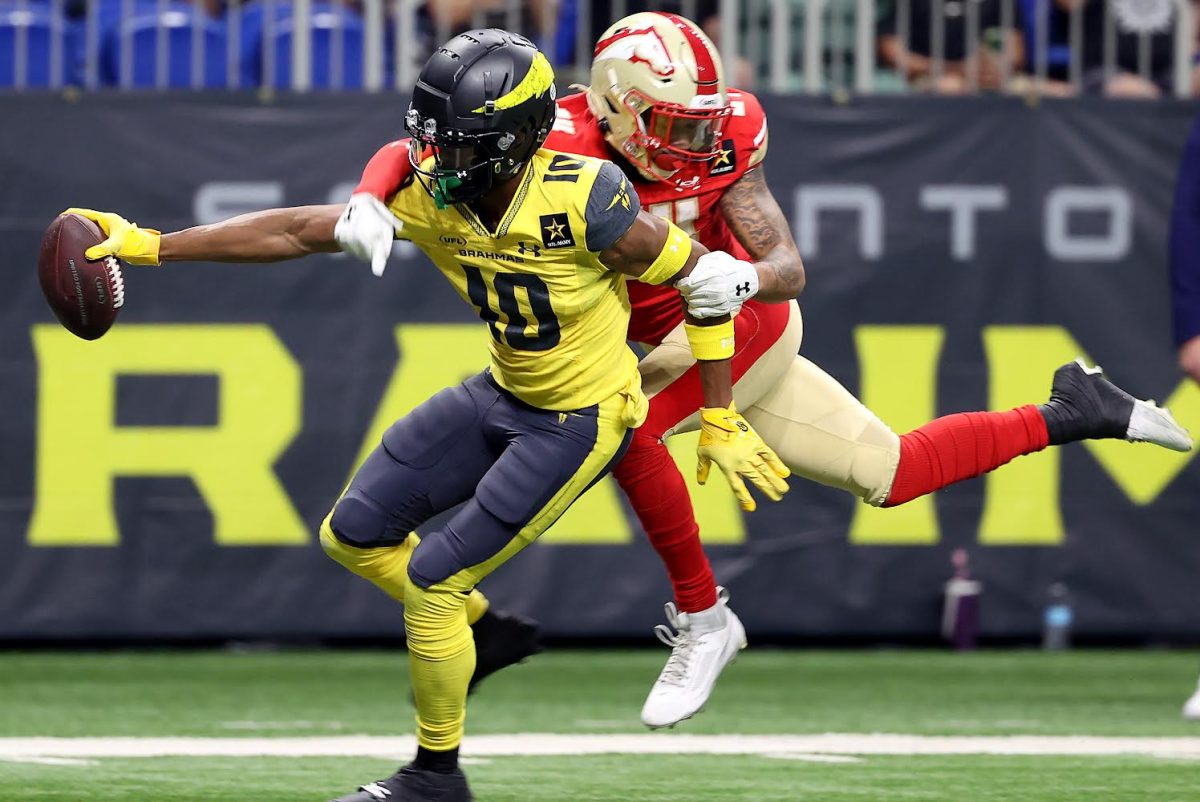_andy_everett__gallery.jpg)
Vincente Cardenas/ The Paisano
“I have the perfect job,” exclaims Andy Everett. “I get paid to talk about games while sitting in the best seat in the house.”
Everett is the UTSA play-by-play commentator for the men’s basketball and football teams. Everett has been with UTSA since 2008 and has been broadcasting for the last 20 years.
“I wanted to be a radio announcer when I was nine years old, maybe even earlier than that,” recalls Everett. “My grandmother had taken me on a shopping trip with her one Saturday, and I was listening to the games on the radio; OU was playing Baylor. When she came out of one of the stores, I was in the car listening. She asked what I was smiling about, and all I said was that I knew what I wanted to be.”
Some people dream of being a sports star playing on a big stage. The sobering reality is that not everyone is a gifted athlete. While some children struggled to find who they were, Everett knew where he wanted to be in life. At a very young age, he decided that nothing could break him away from his love of sports.
“I knew that I was never going to be a top-notch athlete. I could tell when I was seven or eight years old that everyone else was faster, quicker, stronger and more physically gifted to play sports,” reminisces Everett. “But I knew I loved the games, and I knew I wanted to be involved in some way.”
Everett’s love affair with sports continued all the way through college. A graduate of the University of Oklahoma in 1986, he got his start commentating for OU’s football team.
“I started broadcasting as a freshman at OU, and, when my senior year came, I got to do their football games,” Everett says. “The first game that I ever broadcasted was Oklahoma vs. Texas.”
After graduating college, Everett moved to San Antonio in 1988. He worked for what was then a Clear Channel radio station and WOAI to be a part of the Spurs broadcast as their studio host, and he has stayed in San Antonio ever since.
Years later, Everett is now heavily involved in UTSA broadcasting. It all started a few years ago when UTSA athletics expanded.
“It really began in 2006 when UTSA wrote its feasibility study. Part of that study was what they needed to do to improve their presence in radio broadcast. At that time, they really didn’t have a set announcer, and they had lost their radio deals,” Everett says.
“So I knew what I could do, and I wanted to help. I started doing basketball in the 2008 season, and by that time we knew football was coming. From 2006 to 2007, we laid the groundwork for what I’d be able to do for the football broadcasts. Now I’m in my seventh season for the basketball team and third for the football team. I feel very fortunate.”
When commentating different sports, there are many delicate changes. Along with a change in the pace of the game there are also different rules involved.
“A basketball broadcast is different from a football broadcast,” Everett says when asked about the two sports. “Basketball is a shorter broadcast with more games throughout the season, whereas a football broadcast is really an event. Football is a 10-12 hour day with 12 Saturdays throughout the season. The people involved with both broadcasts and the people listening to it care very much about it.”
Andy Everett has become a stalwart in sports radio in the San Antonio area for the last 20 years. In addition to his broadcasting duties with UTSA, Everett can be heard on his weekly radio program, the La Cantera Golf Show, every Saturday morning on KTKR Ticket 760 AM.
Everett takes great pride in delivering broadcasts to the students, alumni and fans of the UTSA football and basketball teams. He measures success by being able to make a fan feel the energy and pulse of each and every play.
“I want people to hear a broadcast that makes them feel that they are there. I want people to hear the crowd and hear the excitement,” Everett says. “I want them to buy tickets to the next game. I want someone who is listening to it in his or her car to want to be there at the next game; if I can do that then I’ve accomplished my job.”









